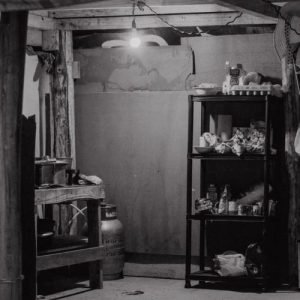A Homeowner’s Guide To Air Duct Repair Or Replacement
 Did you have that one room in your home that didn’t warm up this winter? The one where you walked in and noticed a chill in the air, unlike the rest of the house? The weather is warming up in the Seattle area, and you’re letting your furnace rest. It’s time to think about that one room.
Did you have that one room in your home that didn’t warm up this winter? The one where you walked in and noticed a chill in the air, unlike the rest of the house? The weather is warming up in the Seattle area, and you’re letting your furnace rest. It’s time to think about that one room.
Before you know it, you’ll need the relief of the air conditioner from the warm summer weather, and that one cold room may become the one warm room thanks to faulty air ducts. Now that we’re in that sweet spot between the cold of winter and the heat of Seattle summers consider bringing in your best HVAC guys to do a little HVAC maintenance, check out your ducts, and make sure everything is in shape for summer.
Read on to learn everything you need to know about air duct repair.
How Do Air Ducts Work
Air ducts are the big tubes that bring conditioned air, be it heated or cold, to a room. They’re the roadway that conditioned air travels on. When the road is clear of debris with no detours, such as holes in the tube, your HVAC system does its job efficiently. But when debris such as Cheerios, barrettes, and small toys block the road, or when a tube is crushed or has a hole in it, the air will either back up or escape, and the HVAC system will run harder than it should.
Two different ducts exist, supply and return. Every room will have a so you will have two different types of vents in each room that is vented: a supply register or vent and a return register or vent.
How Do I Know If I Have A Problem
So when a room is really cold when it’s supposed to be warm, or when the heat nearly knocks you over when the rest of the house feels like a cool summer day, do you have a problem?
You might have a bad duct. Or you may have a sofa blocking your vent.
Signs Of A Faulty Duct
- Single rooms or too warm or too cold when the rest of the house is fine.
If you have a single room that consistently has a different temperature than the rest of the house, you may have a problem with the ducts feeding it conditioned air.
- Noticeably high utility bills in the winter or summer months
Your utility bills will be higher when you’re running your HVAC system. But if they’re significantly higher or lower than normal, gauge the rise on the local Pacific Northwest temps, and then consider having your ducts checked out.
- Little or no airflow from the vent
When the HVAC system kicks in, but you feel no air coming from the vent or register, you have a problem. Either something is blocking the duct or the duct is compromised.
- The air filter gets dirty quickly.
You should change your air filter periodically, but you shouldn’t have to change it monthly. A filthy filter every four weeks means something is getting into that ductwork, and you have a compromised duct.
- Streaks of dust at the registers
Inspect your registers one by one. Are they filthy? Clean them.
Then, go back a month later. Do you see a streak of dirt or dust at the registers? IF so, you may have a leak.
- Visibly broken, crushed, or missing duct
Audit your own ductwork by going on a tour of your home. Inspect the ducts. Do you see a big hole, a broken duct, or even a missing duct? You may have a problem.
One Tangible Way To Check Your Ducts
Once you’ve done a vent-by-vent inspection of your home, as mentioned above, you can also do a room-by-room inspection. Here’s what you need to do:
- Turn on your HVAC system, so you have air running through the vents.
- Shut all the interior room doors.
- Close all the exterior doors and windows.
- Go through your home and crack each interior door one at a time.
If your doors are moving, get your ducts checked, as you may have some air pressure problems.
Why This Matters
A poorly functioning duct system, in the end, is costing you a bundle of cash. Imagine 20-30% of the air your HVAC produces ending up in either your attic or basement. This is what happens when you have a hole in your ductwork. You may have the coolest attic in the neighborhood, but no one wants to pay for that.
Not only are you cooling unhabitable areas when you have a faulty duct system, but you’re wearing your HVAC system down more quickly. Keep your ears open when the AC kicks on this summer. Do you hear any odd noises–flapping, whistling, rumbling, or rattling? If so, that’s not normal.
Call the air duct pros in your area.
Common Air Duct Problems
Once you’ve determined you may have a problem, you need to pinpoint what the exact problem is. A myriad of possibilities may be causing your duct problems.
Duct Leaks
Air duct leaks happen when you have a hole in your ductwork for some reason or another. Perhaps the original contract did not install the ducts properly, or maybe a rodent chewed his way through the ductwork. Yes, this happens. Regardless, a leak means air is leaking from the ductwork, which means the air is not moving efficiently to the room you need to be cooled or heated.
Thus, you have one room that’s constantly hotter or colder than the rest of the house.
Under-Insulated Ducts
Due to a variety of reasons, your ducts may actually have inadequate insulation.
Inadequate insulation forces the HVAC system to heat or cool the ductwork before the proper air temp can be reached. So when your AC appears to be blowing warm air at first that eventually cools, let your air duct expert know to look for inadequate insulation.
Unbalanced Airflow
Sometimes, unbalanced airflow, when one register appears to blow more air than another, stems from the register location.
Check where your register is. Do you have a drape blocking it? Or furniture on top of it?
Wrong Size
Contractors who build homes should conduct Manual D calculations. Those contractors who do not do this end up with the wrong-sized ducts. When you have the wrong-size ducts, the joints and seals may not connect tightly, and you end up with a leaky air duct system.
As a result of a leaky system, the HVAC system could suffer from extra stress. Additionally, these ducts will eventually crack and leak.
Old Age
If you have purchased an older home, you may have old air ducts. Ducts, like anything else, are prone to wear and tear. The materials can crack or dry out and cause air leaks.
Uninvited Residents
On occasion, HVAC experts will discover that either rodents or insects have chewed their way through ductwork or insulation.
This breach will lead to compromised ductwork and many of the aforementioned problems.
How To Respond: Air Duct Maintenance
Take a tour of your home some evening. Look in your crawl space, your attic, and your basement, and check your ducts. Look specifically for holes, crushed ducts, or missing ducts. Turn on your HVAC system and see if you can see air moving where it shouldn’t be. You can also maintain your duct system by vacuuming your registers regularly. Keep them free of those toddler-size dusty bunnies that can lurk.
Look at where your furniture and drapes are located in relation to your vents. Make sure your registers have a clear path to pump out air. If your return grills look compromised, consider getting new return-air grills. This small investment can make a big difference. Also, look at undercutting your doors to boost return air.
Air Duct Repair Or Air Duct Replacement Replacement
After you’ve determined you have a problem, you will need to make the big decision of whether you should repair or replace your air ducts. Replacement costs a great deal more than a repair, but in the end, it also fixes the problem.
Call an expert to see if you need either to repair or replace your ductwork. A trusted HVAC expert will know best.
Can I Complete An Air Duct Repair On My Own
The United States Department of Energy gives tips on how to tweak and repair air ducts, but then they say you should contact a professional for all ductwork. Air ducts are no joke. Not only do faulty ducts make your home less energy-efficient and your wallet lighter, but they can be a health hazard when they do not function properly.
If you do not have proper venting, you end up with a build-up of carbon monoxide, and this will cost you more than a repairman could ever charge you.
Let Us Help You
We can help you determine the best course of action for your air duct problems. Contact us for all of your air duct repair or replacement needs at Fischer Heating and Air Conditioning, or give us a call.
